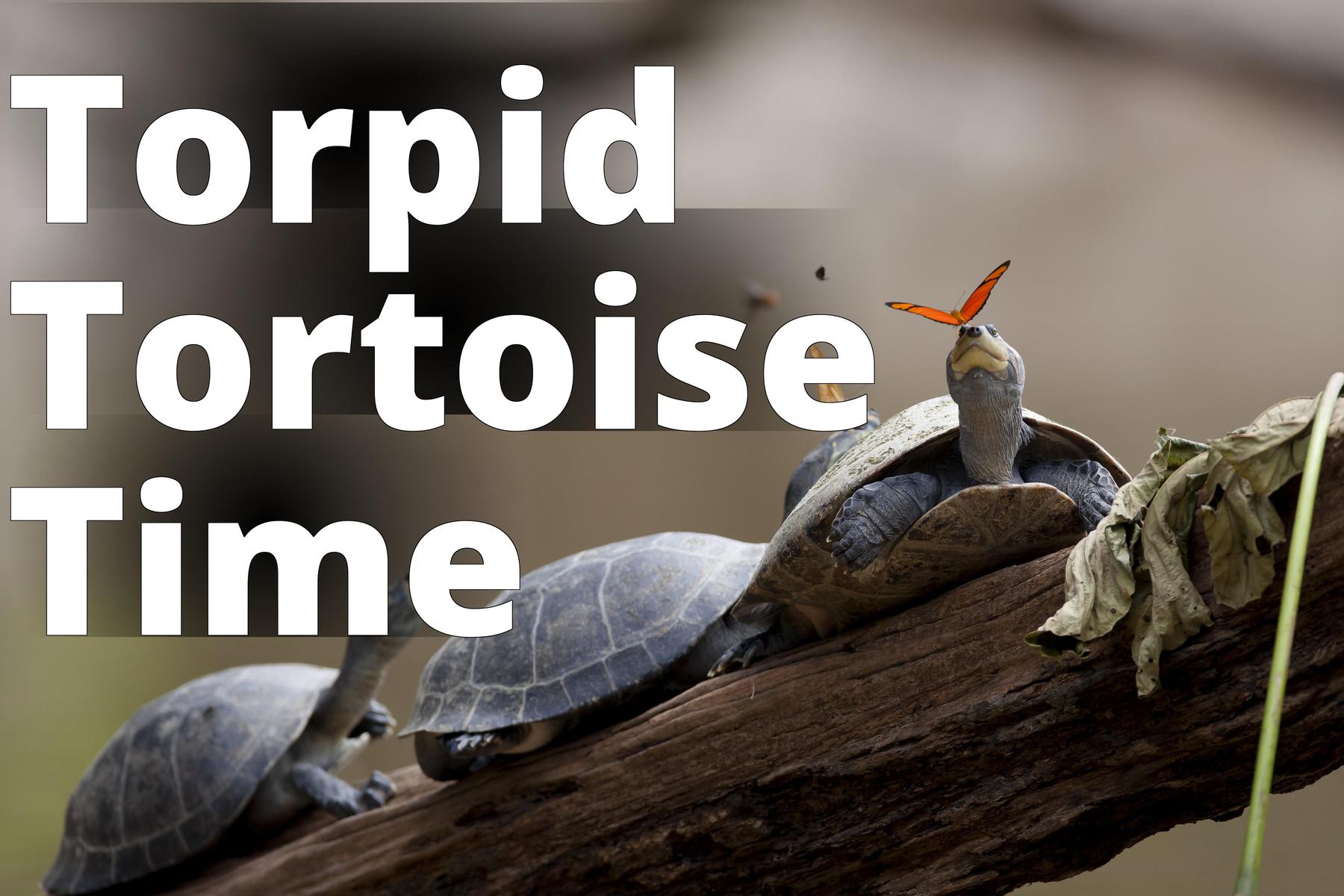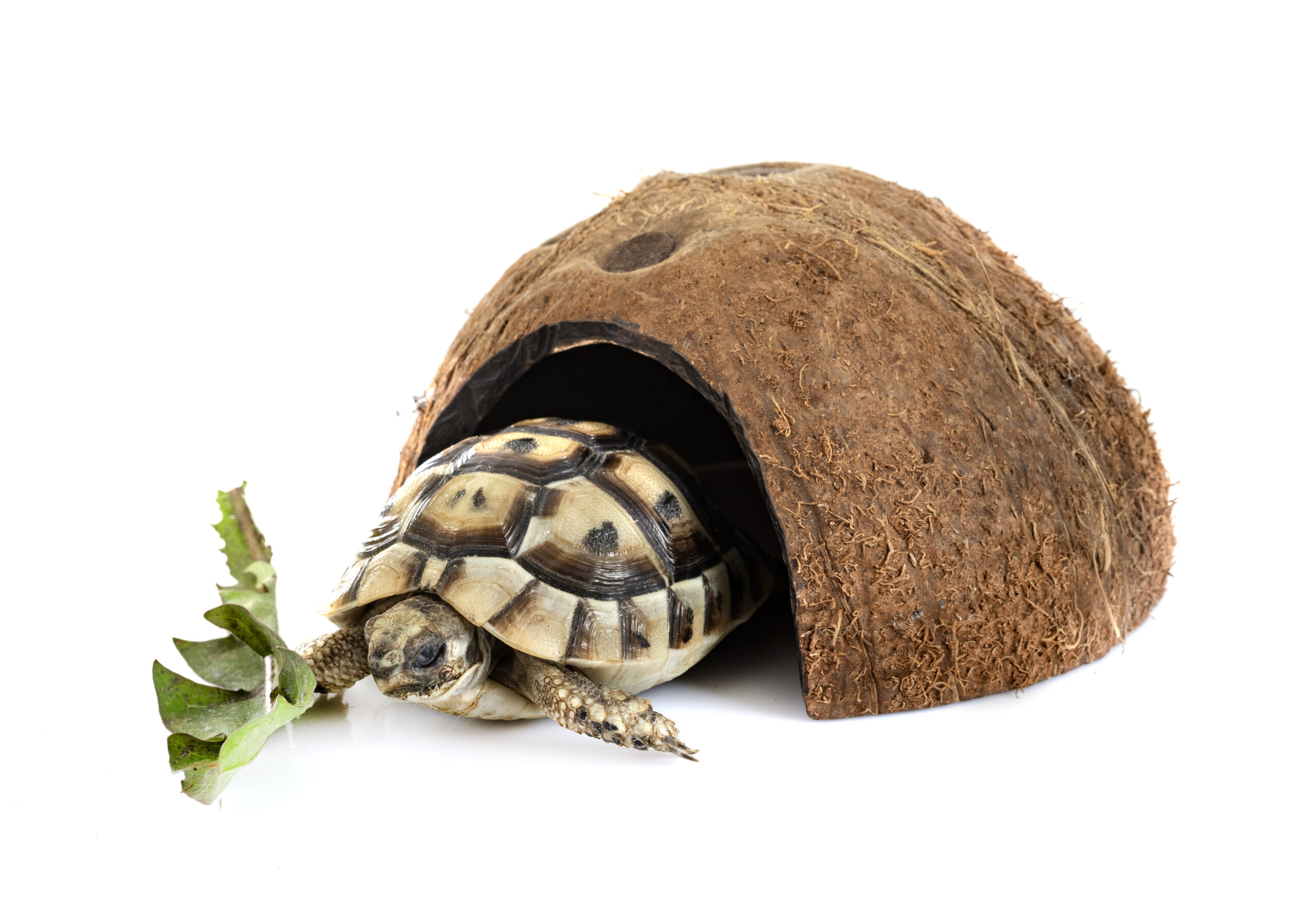If you are a tortoise owner or enthusiast, you might be wondering do tortoises hibernate. The answer is yes, some species of tortoises do hibernate. In this article, we will explore the process of tortoise hibernation, including when and how they hibernate, what happens during hibernation, and how to care for a hibernating tortoise.
Tortoise Hibernation: An Overview
Tortoises are cold-blooded animals that regulate their body temperature according to their surroundings. Hibernation is a survival mechanism that animals use to conserve energy, avoid starvation, and dehydration during the harsh winter months. Not all tortoise species hibernate, primarily those found in temperate regions where winters are cold and harsh.
Do Tortoises Hibernate?
- Yes, some tortoise species hibernate.
- The duration of hibernation and triggers vary between species.
- Caring for a hibernating tortoise requires monitoring and avoiding common mistakes.

Tortoise Hibernation Process
Tortoise hibernation is a complex process that involves physical and physiological changes. During hibernation, tortoises slow down their metabolism, heart rate, breathing rate, and reduce their body temperature. They prepare for hibernation by staying healthy, building up fat reserves, and being in a dry and cool environment.
Tortoise hibernation differs from other animals in several ways. Unlike mammals, which enter into a deep sleep during hibernation, tortoises are still somewhat alert and can wake up if disturbed. They also do not go into a state of torpor, which is a state of reduced metabolic activity that some animals enter into during hibernation.
When and How Tortoises Hibernate
The seasonal and environmental triggers that cause tortoises to hibernate vary depending on the species. Some tortoises hibernate in winter, while others hibernate during the dry season. The duration of hibernation also varies depending on the species, with some tortoises hibernating for several months and others hibernating for only a few weeks.
The signs that a tortoise is about to hibernate include decreased appetite, increased lethargy, and a desire to burrow. If you notice these signs in your tortoise, you should start preparing for hibernation by reducing their food intake and providing them with a suitable hibernation environment.
To create a suitable hibernation environment for your tortoise, you will need to provide them with a cool, dry, and dark place to hibernate. This can be a refrigerator, a garage, or a specially-designed hibernation box. The ideal temperature for tortoise hibernation is between 4 and 10 degrees Celsius.

What Happens During Tortoise Hibernation?
During hibernation, tortoises slow down their metabolism and enter into a state of reduced activity. They do not eat or drink during this time, and their heart rate and breathing rate decrease significantly. Tortoises are able to survive without food and water during hibernation due to their ability to store fat reserves.
There are risks associated with tortoise hibernation, including dehydration, starvation, and respiratory infections. It is important to monitor your tortoise during hibernation to ensure that they are healthy and safe. If you notice any signs of illness or distress, you should seek veterinary care immediately.

Caring for a Hibernating Tortoise
Caring for a hibernating tortoise requires a lot of patience and attention to detail. It is important to monitor your tortoise regularly to ensure that they are healthy and safe. You should also avoid disturbing your tortoise during hibernation, as this can cause them to wake up prematurely and use up their energy reserves.
Common mistakes to avoid when caring for a hibernating tortoise include overfeeding, overwatering, and providing too much heat. These can all cause your tortoise to wake up from hibernation prematurely, which can be dangerous for their health.
What to Do if Your Tortoise Doesn’t Hibernate?
Not all tortoises hibernate, and there are several reasons why this might be the case. Some tortoises may not hibernate due to their natural habitat, while others may not hibernate due to health reasons. If your tortoise does not hibernate, you should provide them with a suitable environment that mimics their natural habitat.
Waking Up a Tortoise from Hibernation
Waking up a tortoise from hibernation should be done with caution and care. Signs that your tortoise is ready to wake up from hibernation include increased activity, movement, and appetite. To wake up your tortoise from hibernation, you should slowly increase the temperature and provide them with food and water.
It is important to avoid waking up your tortoise from hibernation too early, as this can be dangerous for their health. If you are unsure about how to wake up your tortoise from hibernation, you should seek veterinary care.
Personal Story: My Tortoise’s Hibernation Experience
As a tortoise owner, I was worried when my tortoise, named Shelly, stopped moving for weeks on end. I wasn’t sure if Shelly was hibernating or if something was wrong. I started researching tortoise hibernation and learned that some species hibernate for months at a time.
To make sure that Shelly was healthy and safe, I monitored her closely during her hibernation. I made sure that the temperature and humidity in her enclosure were at the ideal levels and that she had enough bedding to burrow into. I also made sure that she had access to clean water and food when she woke up from hibernation.
When Shelly finally woke up from hibernation, I was relieved to see that she was healthy and active. However, I learned that waking up a tortoise too early from hibernation can be dangerous, so I made sure to follow the proper guidelines for waking her up.
Through my experience with Shelly’s hibernation, I learned the importance of understanding tortoise hibernation and how to properly care for a tortoise during this time.
Conclusion
In conclusion, tortoise hibernation is a fascinating and complex process that requires careful attention to detail. By understanding the hibernation process, you can provide your tortoise with a safe and healthy hibernation environment. If you have any concerns about your tortoise’s health or hibernation process, you should seek veterinary care. With proper care, your tortoise can enjoy a long and healthy life.
| Tortoise Species | Habitat | Hibernation Duration | Hibernation Temperature |
|---|---|---|---|
| Russian Tortoise | Arid | 1-4 months | 5-10°C |
| Hermann’s Tortoise | Mediterranean | 2-4 months | 5-10°C |
| Greek Tortoise | Mediterranean | 2-4 months | 5-10°C |
| Marginated Tortoise | Mediterranean | 2-4 months | 5-10°C |
| Spur-thighed Tortoise | Mediterranean | 2-4 months | 5-10°C |
| Desert Tortoise | Desert | 3-6 months | 5-10°C |
| Gopher Tortoise | Grasslands and Scrublands | 2-4 months | 5-10°C |
FAQs
Who hibernates, male or female tortoises?
Both male and female tortoises hibernate.
What is the hibernation time for tortoises?
Hibernation time for tortoises is typically 2-5 months.
How do tortoises prepare for hibernation?
Tortoises prepare for hibernation by eating more food and finding a safe, warm spot.
Who should I contact if my tortoise won’t wake up from hibernation?
Contact a veterinarian if your tortoise won’t wake up from hibernation.
What are the risks of hibernation for tortoises?
Risks of hibernation for tortoises include dehydration, starvation, and respiratory infections.
How can I tell if my tortoise is ready for hibernation?
Your tortoise may be ready for hibernation if it starts eating less and becomes less active.







